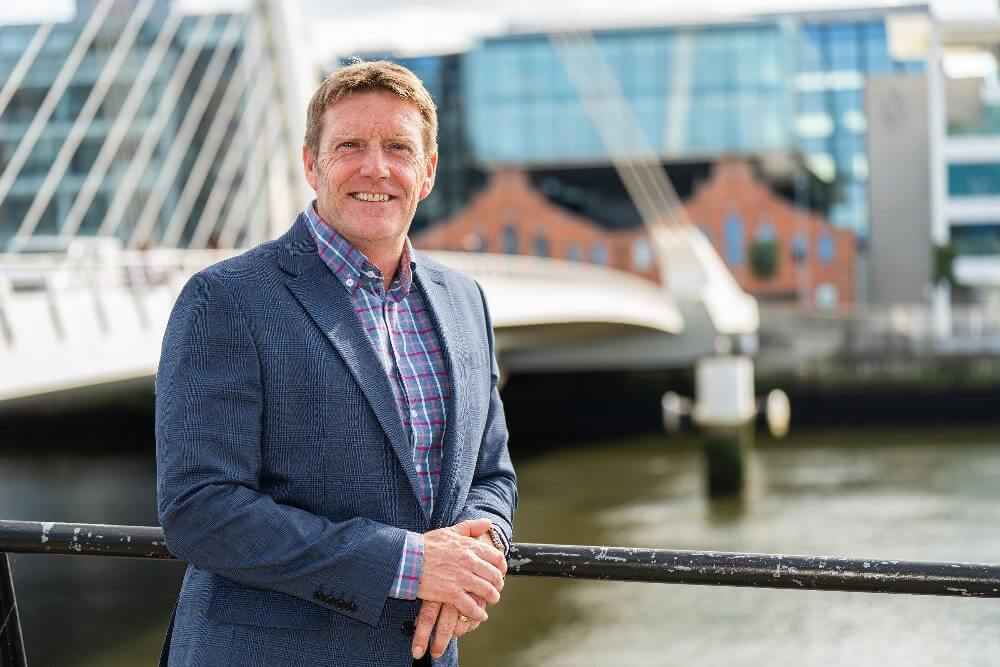Podcast Ep 188: Ashley Shak from Dogpatch Labs on positioning Ireland as a global testbed for innovation as The 2050 Accelerator takes on the next cohort.
Ashley Shak, head of Sustainability and Programmes at Dogpatch Labs, spoke with the Thinkbusiness Podcast about how The 2050 Accelerator programme is helping start-ups to collaborate on climate-focused initiatives and
Shak leads on The 2050 Accelerator Programme, which has been set up in partnership with Kerry Group, ESB and Coillte to support 12 start-ups from Ireland and abroad to solve a number of sustainability challenges, working towards proof of concept.
“It’s a way for corporates to accelerate their own advancements in addressing their sustainability issues. It’s also a great way for start-ups to get that route to market and a chance to work with new customers. For most of the start-ups, it’s a chance for global scaling”
Prior to joining Dogpatch Shak cut her teeth on the SDG Ambition United Nations accelerator with Accenture, SAP and 3M which ran across 600 companies and 70 countries. She also worked on the Smart Docklands Changemakers programme and was social enterprise research and policy manager at the Social Enterprise Exchange which connected social enterprises in Ireland’s midlands to foster innovation and collaboration.
Ireland’s national sustainability accelerator
She explained that the 2050 Accelerator Programme is working with the Department of Environment, Climate and Communications as Ireland’s national sustainability accelerator.
“The 2050 title comes from the year that the wider EU governments have agreed to try and reach its net zero goal.”
She explained that the accelerator’s first cohort of start-ups began the programme in June of last year and that the programme is now gathering its second cohort. The programme sees Irish and international start-ups in the sustainability space come together with experts from industry to pilot their projects.
During the programme start-ups will get access to Irish infrastructure such as wind farms, dairy farms and forestry.
The accelerator’s partners each support three companies as they work to develop their climate-focused projects while another three will be supported by the Grantham Foundation.
“It’s a six-month accelerator with the final three months the start-ups come to Ireland for the in-person core phase. That second phase is what we call the pilot phase.
“What really sets the 2050 Accelerator apart is that we have this big focus on running pilots because that is the biggest way that we can have an impact on wider sustainability challenges, not just decarbonisation but other sustainability challenges such as in the social and governance area. That’s what really sets us apart from a lot of the accelerators out there.
“They exist to teach start-ups how to start-up, and that’s a really important support especially in the early stage. But we already know that a lot of really great sustainability start-ups exist out there.
“We work with these big corporate partners who have these wider sustainability strategies and challenges with focus areas they want to address. And we do that by pairing them up with start-ups.
“So it’s a way for corporates to accelerate their own advancements in addressing their sustainability issues. It’s also a great way for start-ups to get that route to market and a chance to work with new customers. For most of the start-ups, it’s a chance for global scaling.”
The key to the most recent cohort’s success, she explains, has been the diversity of the founders, with founders coming from not only Ireland but also locations like California, Mexico, the UK and further afield.
“A quarter of the cohort were female founders and we’re really hoping that with this new cohort we are assembling we can go even further.”
She also hopes to see the focus of the start-ups widen. “For this upcoming year we’re really hoping we can go even further into markets like Africa and Asia to show our dedication to global sustainability challenges.”
In terms of the kind of challenges that The 2050 Accelerator’s corporate partners have been addressing, Shak said that solutions piloted on the ground in Ireland could have global impact.
“Kerry Group is the leading supplier of sustainable nutrition ingredients in the world. Coillte, Ireland’s semi-State forestry agency, owns about 8% of Ireland’s land which is forested. And ESB is Ireland’s largest energy supplier.
“Each of them had sustainability challenges they want to address. For example, Kerry Group really wanted to focus on animal health.”
Shak said that by combining software like AI with hardware like sensors and cameras, a whole world of opportunity can be opened to help organisations to innovate and discover new ways to be sustainable and reduce emissions.
“Hardware solutions can be expensive and it’s hard for venture capitalists to understand sometimes. So I think that’s why a programme like The 2050 Accelerator is there to take that risk or remove that risk by being the middleman between the start-up and corporate partners. We are really there to accelerate that collaboration to make sure we can accelerate that tech to everywhere in the world.”
-
Bank of Ireland is welcoming new customers every day – funding investments, working capital and expansions across multiple sectors. To learn more, click here
-
Listen to the ThinkBusiness Podcast for business insights and inspiration. All episodes are here. You can also listen to the Podcast on:
-
Apple
-
Spotify
-
SoundCloud





